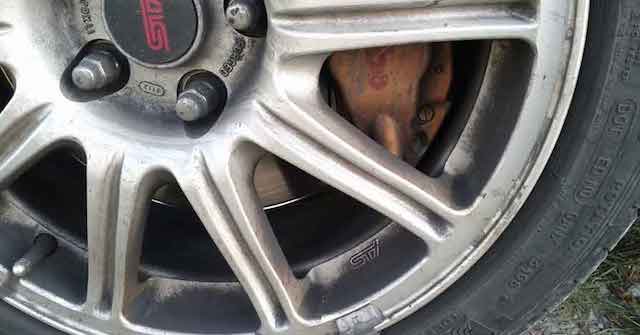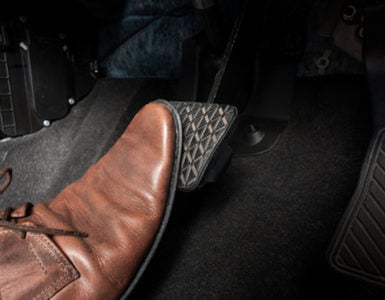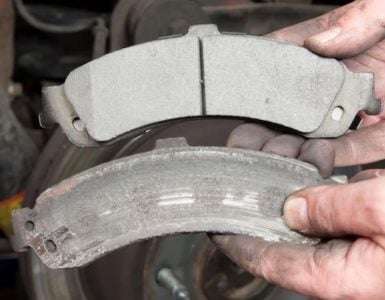Many of you wonder if brake noise and brake dust are related. Do noisy brakes produce a lot of dust, and vice versa? The short answer is yes, but not always. Read on for the long answer.
What Causes Brake Noise?
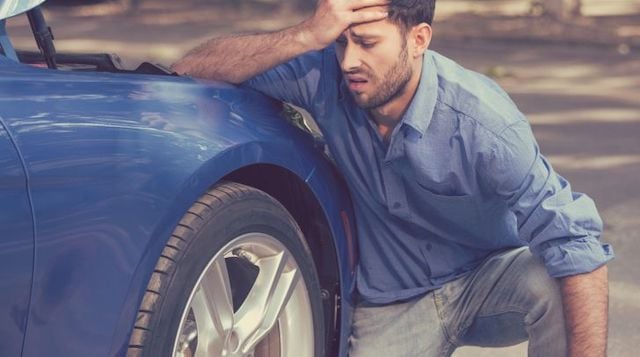
There are several different things that cause excessive brake noise:
1. Worn Brakes
Worn brakes are almost always noisy. When there’s not enough brake pad material left, there can be metal-on-metal contact. The contact occurs between the rotor and either the:
- Metal backing plate (which causes a grinding noise)
- Brake wear indicator (which causes a high pitched squeal)
Glazing may also cause excessive noise. When there’s not enough brake pad material left, excessive heat can build up in the braking system. This may cause glazing on the pads and the rotors (or drums). These parts become hard and shiny. When these parts come into contact, noise occurs. Braking performance also suffers.
2. Brake Dust And/Or Road Contaminants
It’s common for dust build up to occur within the brake system. Brake dust and other road contaminants can build up on the pads, rotors, and/or drums. That may cause uneven braking, which can be quite noisy.
3. Incompatibility With The Brake System
When you use brake pads that aren’t compatible with your rotors, there will be some noise.
Let’s say your vehicle has rotors that are compatible with ceramic brake pads. If you install semi-metallic brake pads, you’re likely going to hear a lot of noise. Ceramic pads are harder than semi-metallic pads, so semi-metallic pads will be too soft for your rotors. This results in the semi-metallic pads failing to grip the rotors that well. Instead, they’ll grind against the rotor and make a squealing noise. There will be excessive dust, too. This is one of the situations when brake pad noise and dust are related.
4. Excessive Heat
When excessive heat builds up in the brake system, the brakes will glaze over. We mentioned earlier that excessive heat occurs when the brake pads are too worn. There are other causes for excessive heat, though:
- Heavy braking from hard driving or towing
- Improperly adjusted drum brakes
If you find that the noise is caused by glazing, determine the cause and fix it. Also, replace the brake system components that have been glazed.
What Causes Brake Dust?
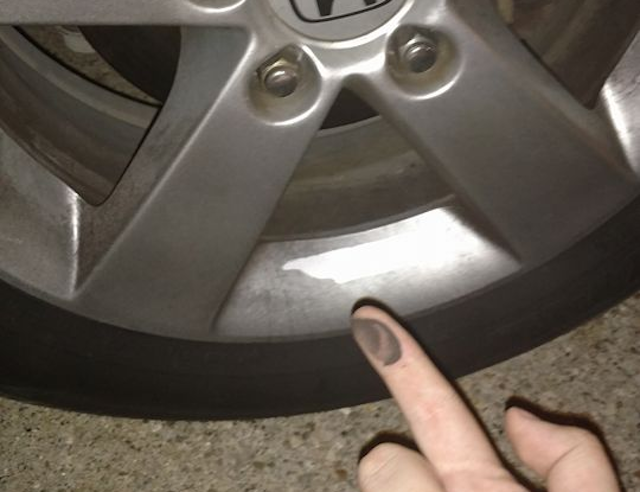
The most common causes of excessive brake dust are:
1. Incompatibility With The Brake System
If your vehicle’s brake system is designed for a certain type of pad, and it has a different kind of pad, there may be some excessive dust. Your brake pads may be too soft for the rotors. In such a situation, they fail to create a firm grip on the rotors. The friction between the rotors and brake pads will create a lot of noise and dust.
2. Heavy Brake Use
If your brake pads are compatible with the brake system, they can still create a lot of dust if you brake heavily and aggressively often. The more dust is created, the faster your brake pads will wear out.
If you’re facing this problem, you may want to look into getting a brake pad and rotor kit designed for high performance or towing. If your vehicle is only a daily driver, changing to a different type of pad may solve the problem.
3. The Type Of Brake Pads
All brake pads create dust, but some types create more dust than others. There are basically three different types of brake pad materials:
- Ceramic brake pads
- Semi-metallic brake pads
- Organic brake pads
Out of those three types of pads, organic pads create the most amount of dust. It’s because organic pads are the softest. Semi-metallic brake pads are a little harder than organic pads, so they create some amount of dust. Ceramic brake pads create the least amount of dust because they’re the hardest type.
If your new pads are making a squeaking sound, this guide may help you pinpoint the issue.
4. Sticking Caliper Or Worn Springs
If only one of your wheels has dust, then the culprit may be:
- A sticking caliper (disc brakes)
- Worn springs (drum brakes)
Either bad part will keep your pads against the rotor or drum for a period of time. The friction material rubs against the rotor or drum, and this creates dust. When there’s constant friction, you’ll hear some brake pad noise.
5. Scored Rotor
A scored rotor isn’t kind to your brake pads. The rotor surface isn’t smooth, so it will cause uneven wear on the brake pads. This results in the brake pads producing more dust than usual. You may hear some brake pad noise, too.
Brake Noise And Dust Are Not Always Related
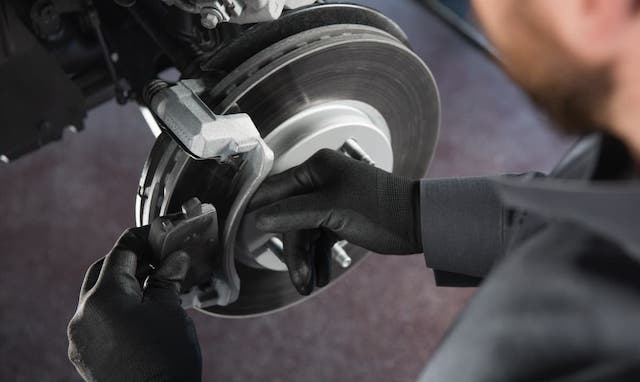
You can see an overlap between the causes of noisy brakes and the causes of brake dust. Yet, just because your brakes are making noise doesn’t always mean they’re creating dust, or vice versa.
Make Sure You Pick The Right Replacement Brake Pads For Your Vehicle’s Brake System
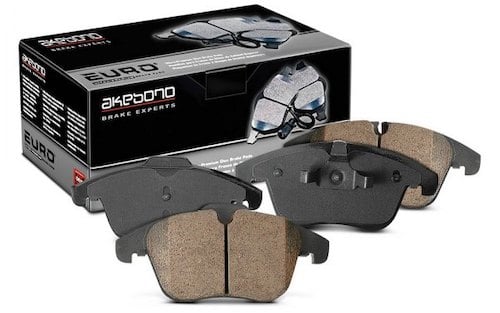
One of the best ways to avoid excessive brake noise and dust is to make sure your pads are compatible with your brake system. If you have OEM rotors and/or drums on your vehicle, check your owner’s manual for information on which pads to use. If you need help figuring out which replacement pads to get, we can help. You can contact us here. We carry a variety of quality brake pads. Some of our pads are specifically formulated to create as little noise and dust as possible. Check out our selection of brake pads here!
